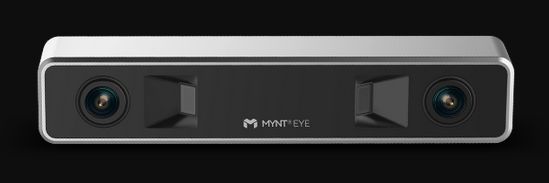视觉SLAM——小觅相机实测vins-mono步骤
文章目录
- step1 相机对应驱动——ubuntu SDK源码安装
- step2 相机测试、标定参数获取
- step3 安装vins并建立启动文件
- step4 开启相机节点并运行vins
使用的是双目深度板小觅相机,只需要使用相机左摄像头和IMU。其他相机亦可参考。

step1 相机对应驱动——ubuntu SDK源码安装
(1)下载与安装
注:下载安装前保证opencv等已安装。
git clone https://github.com/slightech/MYNT-EYE-S-SDK.git
cd <sdk> // 是指MYNT-EYE-S-SDK路径
make init
make install //最终,默认会安装在 /usr/local 目录
(2)编译样例
cd <sdk>
make samples
(3)编译工具
cd <sdk>
make tools
step2 相机测试、标定参数获取
1)测试相机(不使用ros)
cd
./samples/_output/bin/api/camera_a
2)测试相机(使用ros)
cd <sdk>
make ros //仅第一次需要
source wrappers/ros/devel/setup.bash
roslaunch mynt_eye_ros_wrapper mynteye.launch // 打开摄像头,但默认不显示图像
roslaunch mynt_eye_ros_wrapper display.launch //也可以运行这个节点,会打开 RViz 显示图像
3)获得当前工作设备的图像校准参数与imu校准参数:
cd <sdk>
./samples/_output/bin/tutorials/get_img_params //获取相机标定参数
./samples/_output/bin/tutorials/get_imu_params //获取IMU标定参数
step3 安装vins并建立启动文件
1)在github下载vins源码,并在工作空间下编译安装
vins源码:https://github.com/HKUST-Aerial-Robotics/VINS-Mono
也可使用以下命令安装
cd ~/ws_vins/src //your vins_workspace
git clone https://github.com/HKUST-Aerial-Robotics/VINS-Mono.git
cd ../
catkin_make
source ~/ws_vins/devel/setup.bash
2)建立启动文件
第一步:在~/ws_vins/src/VINS-Mono/vins_estimator/launch下新建一个mynteye.launch文件。
第二步:在/home/fish/ws_vins/src/VINS-Mono/config文件下建立一个名为mynteye的文件夹,并新建mynteye_config.yaml文件。
两个文件内容分别如下:
mynteye.launch :
<launch>
<arg name="config_path" default = "$(find feature_tracker)/../config/mynteye/mynteye_config.yaml" />
<arg name="vins_path" default = "$(find feature_tracker)/../config/../" />
<node name="feature_tracker" pkg="feature_tracker" type="feature_tracker" output="log">
<param name="config_file" type="string" value="$(arg config_path)" />
<param name="vins_folder" type="string" value="$(arg vins_path)" />
</node>
<node name="vins_estimator" pkg="vins_estimator" type="vins_estimator" output="screen">
<param name="config_file" type="string" value="$(arg config_path)" />
<param name="vins_folder" type="string" value="$(arg vins_path)" />
</node>
<node name="pose_graph" pkg="pose_graph" type="pose_graph" output="screen">
<param name="config_file" type="string" value="$(arg config_path)" />
<param name="visualization_shift_x" type="int" value="0" />
<param name="visualization_shift_y" type="int" value="0" />
<param name="skip_cnt" type="int" value="0" />
<param name="skip_dis" type="double" value="0" />
</node>
</launch>
mynteye_config.yaml :
注意将部分参数更换(如topic和相机、imu参数)
%YAML:1.0
#common parameters
imu_topic: "/mynteye/imu/data_raw" #换成你的IMU的话题
image_topic: "/mynteye/left/image_raw" #换成你的相机的话题
output_path: "/home/fish/ws_vins/src/VINS-Mono/config/output_path/" #换成你的路径
#camera calibration
model_type: PINHOLE
camera_name: camera
image_width: 752 #换成你的相机参数(step2中获取的参数)
image_height: 480 #换成你的相机参数
distortion_parameters: #换成你的畸变参数
k1: -0.266278
k2: 0.0527945
p1: -0.000182013
p2: 0.000422317
projection_parameters: #换成你的相机内参
fx: 365.75
fy: 373.236
cx: 357.402
cy: 241.418
# Extrinsic parameter between IMU and Camera.
estimate_extrinsic: 0 # 0 Have an accurate extrinsic parameters. We will trust the following imu^R_cam, imu^T_cam, don't change it.
# 1 Have an initial guess about extrinsic parameters. We will optimize around your initial guess.
# 2 Don't know anything about extrinsic parameters. You don't need to give R,T. We will try to calibrate it. Do some rotation movement at beginning.
#If you choose 0 or 1, you should write down the following matrix.
#Rotation from camera frame to imu frame, imu^R_cam
extrinsicRotation: !!opencv-matrix
rows: 3
cols: 3
dt: d
data: [-0.00646620000000000, -0.99994994000000004, -0.00763565000000000, 0.99997908999999996, -0.00646566000000000, -0.00009558000000000, 0.00004620000000000, -0.00763611000000000, 0.99997084000000003]
#Translation from camera frame to imu frame, imu^T_cam
extrinsicTranslation: !!opencv-matrix
rows: 3
cols: 1
dt: d
data: [0.00533646000000000, -0.04302922000000000, 0.02303124000000000]
#feature traker paprameters
max_cnt: 150 # max feature number in feature tracking
min_dist: 30 # min distance between two features
freq: 10 # frequence (Hz) of publish tracking result. At least 10Hz for good estimation. If set 0, the frequence will be same as raw image
F_threshold: 1.0 # ransac threshold (pixel)
show_track: 1 # publish tracking image as topic
equalize: 1 # if image is too dark or light, trun on equalize to find enough features
fisheye: 0 # if using fisheye, trun on it. A circle mask will be loaded to remove edge noisy points
#optimization parameters
max_solver_time: 0.04 # max solver itration time (ms), to guarantee real time
max_num_iterations: 8 # max solver itrations, to guarantee real time
keyframe_parallax: 10.0 # keyframe selection threshold (pixel)
#imu parameters The more accurate parameters you provide, the better performance
acc_n: 0.08 # accelerometer measurement noise standard deviation. #0.2 0.04
gyr_n: 0.004 # gyroscope measurement noise standard deviation. #0.05 0.004
acc_w: 0.00004 # accelerometer bias random work noise standard deviation. #0.02
gyr_w: 2.0e-6 # gyroscope bias random work noise standard deviation. #4.0e-5
g_norm: 9.81007 # gravity magnitude
#loop closure parameters
loop_closure: 1 # start loop closure
load_previous_pose_graph: 0 # load and reuse previous pose graph; load from 'pose_graph_save_path'
fast_relocalization: 0 # useful in real-time and large project
pose_graph_save_path: "/home/fish/ws_vins/src/VINS-Mono/config/output_path/" # #换成你的路径
#unsynchronization parameters
estimate_td: 0 # online estimate time offset between camera and imu
td: 0.0 # initial value of time offset. unit: s. readed image clock + td = real image clock (IMU clock)
#rolling shutter parameters
rolling_shutter: 0 # 0: global shutter camera, 1: rolling shutter camera
rolling_shutter_tr: 0 # unit: s. rolling shutter read out time per frame (from data sheet).
#visualization parameters
save_image: 1 # save image in pose graph for visualization prupose; you can close this function by setting 0
visualize_imu_forward: 0 # output imu forward propogation to achieve low latency and high frequence results
visualize_camera_size: 0.4 # size of camera marker in RVIZ
step4 开启相机节点并运行vins
1) 启动相机
cd <sdk>
source ./wrappers/ros/devel/setup.bash
roslaunch mynt_eye_ros_wrapper mynteye.launch
2)启动vins
cd ws_vins //your vins_workspace
source devel/setup.bash
roslaunch vins_estimator mynteye.launch
3)启动可视化环境
cd ws_vins //your vins_workspace
source devel/setup.bash
roslaunch vins_estimator vins_rviz.launch
完成。